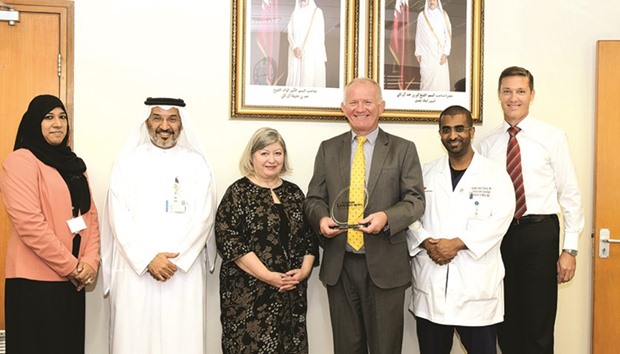The Hamad Medical Corporation (HMC) has been recognised for its outstanding delivery of care to patients with the introduction and implementation of the Qatar Early Warning System (QEWS) - a threshold-based system where clinicians receive alerts when a patient’s condition is deteriorating at a significant rate requiring rapid clinical intervention.
HMC won the “Healthcare Implementation of the Year” award for its QEWS implementation at the recently held 12th Annual Arabian Computer News Arab Technology Awards which recognises outstanding work that has been carried out in the Middle East’s enterprise market over the past 12 months.
Designed and developed on the foundation of the ‘Between The Flags’ program’, developed in Australia, QEWS was introduced at HMC at the end of 2015 and adapted to meet local clinical requirements.
It has been deployed across all eight HMC tertiary and general hospitals and has been proven to deliver substantial benefits to patients as well as the healthcare professionals committed to care for them.
HMC’s chief medical officer, Prof Mike Richmond, said an important framework for achieving the objectives of the system was put in place across all HMC facilities.
“Since QEWS was introduced, there have been huge contributions from a significant number of people across the organisation in terms of planning, education and training. They have also been able to link it to the implementation of electronic medical records as it empowers medical and nursing staff to respond in a timelier manner to patients who are at risk.The system is designed to make sure the best care is given as early as possible for patients who need prompt intervention,” Richmond said.
Dr Ibrahim Mohamed Fawzy Hassan, director, Medical Intensive Care Unit and deputy medical director, Ambulance Service at HMC, explained that QEWS was developed to help medical staff recognise deteriorating patients before they become very sick.
“Once you have the system in place, it’s clear to the nurses and everyone involved in patient care that the patient needs help.This will activate the rapid team response to ensure that the affected patients are treated early. We have demonstrated that by implementing this programme effectively, we can decrease the sudden deterioration of patients significantly,” he explained.

HMC officials with the award plaque.
